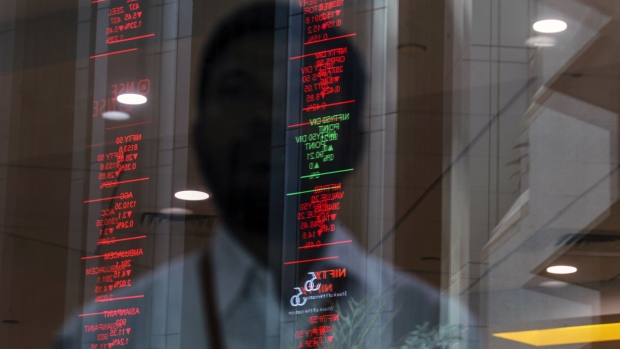May 10, 2024
Citi Cuts China Stocks on Fundamentals to Neutral, Raises India
, Bloomberg News

(Bloomberg) -- Sign up for the India Edition newsletter by Menaka Doshi – an insider's guide to the emerging economic powerhouse, and the billionaires and businesses behind its rise, delivered weekly.
Strategists at Citigroup Inc. downgraded high-flying Chinese equities to neutral, arguing that their recent rally has come despite weakening fundamentals. The team upgraded emerging-market rival India to overweight.
“Our EM country strategy favor markets with inflecting earnings and strong EPS momentum,” strategists including David Groman and Beata Manthey wrote in a note Friday. “China’s recent rally has not yet been supported by improving fundamentals.”
India, on the other hand, is benefiting from strong earnings momentum and projected growth, they wrote.
Citi’s China downgrade comes as some underlying positives are signaling more gains for the market. Relatively low valuations following a multi-year slump and government initiatives to boost the struggling economy have already spurred a rally in recent months, with a gauge of Chinese equities listed in Hong Kong surging more than 15% this quarter to become one of the world’s top performers.
Strategists at Citi cut emerging-market stocks to neutral on April 8. Since then, the MSCI Emerging Markets Index has risen about 2%, versus a little-changed MSCI World Index.
Among other key changes to its emerging-market allocation, Citigroup on Friday upgraded South African stocks to overweight and Southeast Asia’s to neutral. It reduced Poland to neutral and Saudi Arabia to underweight.
Overweight India
India’s upgrade coincides with budding optimism that earnings momentum for local companies is on the mend. Profit upgrades for the nation’s firms in 2024 are outpacing those of other Asian emerging-market peers including South Korea, Taiwan and China, data compiled by Bloomberg show.
Still, election-related jitters have led to some weakness in Indian equities, a preferred destination for EM investors since global equities bottomed in March 2020. A so-called fear gauge for local stocks is witnessing a record gaining streak, while the benchmark NSE Nifty 50 Index has fallen below its 100-day moving average amid speculation that Prime Minister Narendra Modi’s party will win fewer seats than expected in the ongoing election.
Read more: Poll Jitters Hit Indian Stocks as Nifty Breaks Crucial Support
Hiren Dasani, co-head of emerging markets equities at Goldman Sachs Group Inc., downplayed concerns related to the recent volatility in Indian stocks.
Markets in India are approaching the national elections in a “fairly mature way” and there is no “disorderly movement,” he told Bloomberg’s Menaka Doshi in an online discussion on Friday. “It’s quite natural that as we approach a very long-drawn election, there will be some de-risking, which is part and parcel of any such event.”
‘Yet to Turn’
Equities in Hong Kong led gains in Asia on Friday as regulators were said to be considering a proposal to exempt individual investors from paying taxes on dividends earned from stocks bought via the Stock Connect. Meanwhile, an index of onshore Chinese shares treaded water as traders assessed a report saying President Joe Biden’s administration is poised to unveil a sweeping decision on China tariffs as soon as next week.
Investors are keenly awaiting earnings from Chinese tech giants Tencent Holdings Ltd. and Alibaba Group Holding Ltd. next Tuesday as their results could determine the market’s near-term direction. Tech firms are something of a bellwether for the nation’s stock market as they have tentacles stretching through the economy from their online sales, advertising and mobile games.
Companies on the MSCI China Index that have reported results since April 1 have on an aggregate basis trailed estimates by nearly 8%, according to data compiled by Bloomberg.
“The earnings cycle has yet to turn in China, and the housing market has yet to stabilize,” Societe Generale SA strategists including Frank Benzimra wrote in a note. The conditions for a rotation out of Japan, India and other favored Asian stock markets and into China “have not been met yet,” they added.
(Updates throughout.)
©2024 Bloomberg L.P.





